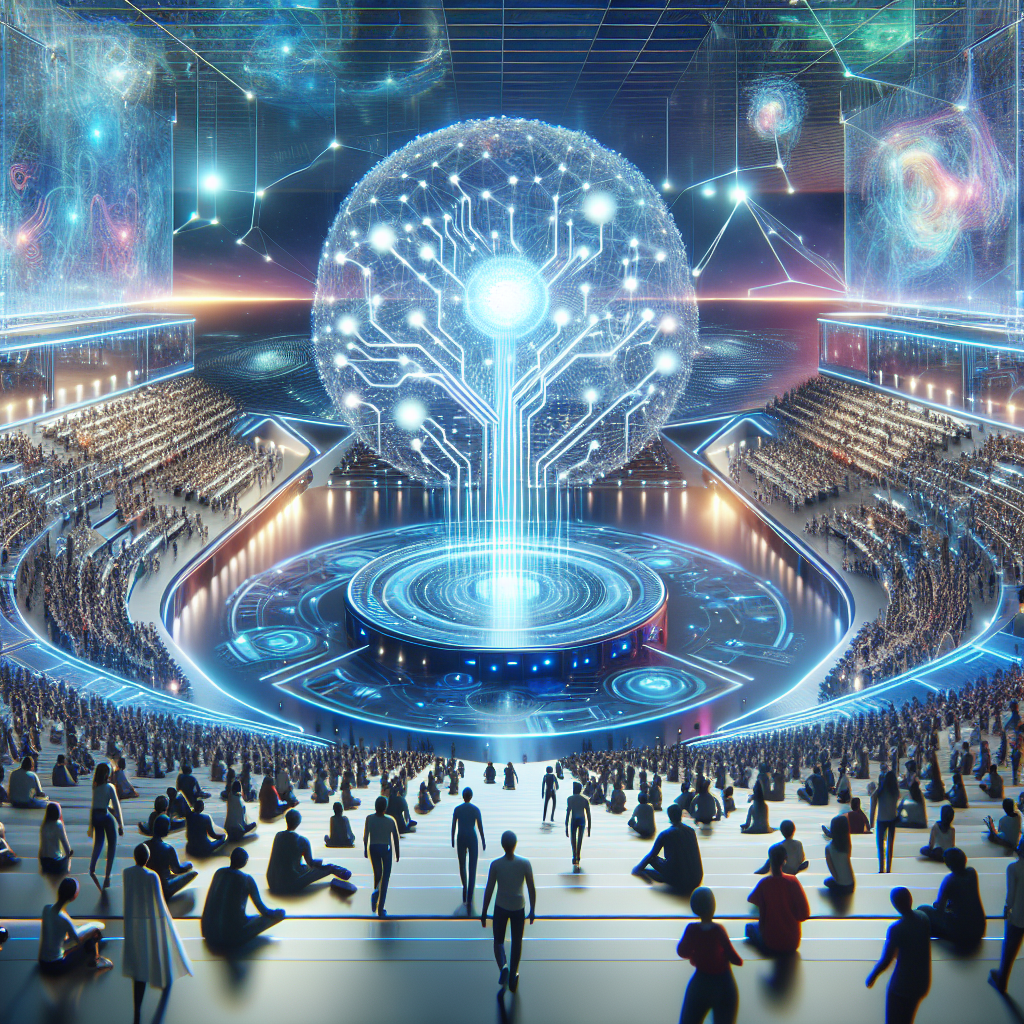Generative AI, also known as artificial intelligence that can create or generate content, is revolutionizing the entertainment industry. From creating unique characters and storylines to designing breathtaking visual effects, generative AI is changing the way we experience entertainment in movies, video games, and more. In this article, we will explore the future of generative AI in entertainment and its potential impact on the industry.
One of the most exciting applications of generative AI in entertainment is in the creation of virtual actors and characters. Traditionally, creating realistic and lifelike characters for movies or video games has been a time-consuming and expensive process. However, with generative AI, developers can now easily generate virtual characters with unique personalities, appearances, and behaviors. This not only speeds up the production process but also allows for more diverse and inclusive representation in entertainment media.
Another area where generative AI is making a significant impact is in the creation of dynamic and interactive storylines. In video games, for example, generative AI can create branching narratives that respond to player choices and actions, leading to a more immersive and personalized gaming experience. In movies and TV shows, generative AI can help writers and directors explore new storytelling possibilities and experiment with unconventional narrative structures.
Visual effects are another area where generative AI is revolutionizing the entertainment industry. Generative AI can be used to create stunning visual effects, such as realistic landscapes, creatures, and special effects, that were previously only possible with extensive manual labor and expensive software tools. This not only reduces production costs but also allows for more creativity and innovation in visual storytelling.
Generative AI is also being used to enhance the music and sound design in entertainment media. AI algorithms can analyze and synthesize audio data to create original music compositions, sound effects, and voiceovers. This can help composers and sound designers experiment with new styles and genres, leading to more diverse and engaging audio experiences for audiences.
In the future, we can expect to see even more advancements in generative AI technology that will further revolutionize the entertainment industry. For example, AI algorithms may be able to generate entire movies or video games from scratch, combining elements of storytelling, visual effects, and sound design into a seamless and immersive experience. Virtual reality and augmented reality technologies will also benefit from generative AI, allowing for more interactive and immersive entertainment experiences.
However, as generative AI becomes more prevalent in entertainment media, there are also concerns about its impact on creativity and originality. Some critics argue that generative AI may lead to a homogenization of content, as algorithms tend to favor popular trends and formulas over original ideas. Additionally, there are ethical considerations surrounding the use of AI-generated content, such as issues of copyright infringement and intellectual property rights.
Despite these challenges, generative AI has the potential to revolutionize the entertainment industry in exciting and innovative ways. By leveraging the power of AI algorithms, creators and developers can push the boundaries of storytelling, visual effects, and sound design, leading to more immersive and engaging entertainment experiences for audiences.
FAQs:
1. How is generative AI different from traditional CGI and special effects?
Generative AI uses algorithms to generate content, such as characters, storylines, and visual effects, while traditional CGI and special effects involve manually creating and animating content using software tools. Generative AI can speed up the production process and allow for more creativity and innovation in content creation.
2. What are some examples of generative AI in entertainment?
Some examples of generative AI in entertainment include creating virtual actors and characters, generating dynamic storylines in video games, and enhancing visual effects in movies and TV shows. AI algorithms can also be used to create original music compositions, sound effects, and voiceovers.
3. What are the potential benefits of generative AI in the entertainment industry?
Generative AI can help speed up the production process, reduce production costs, and allow for more creativity and innovation in content creation. It can also lead to more diverse and inclusive representation in entertainment media and provide audiences with more immersive and engaging entertainment experiences.
4. What are some challenges and concerns surrounding generative AI in entertainment?
Some challenges and concerns surrounding generative AI in entertainment include its impact on creativity and originality, as well as ethical considerations surrounding copyright infringement and intellectual property rights. Critics argue that generative AI may lead to a homogenization of content and favor popular trends and formulas over original ideas.
5. What can we expect to see in the future of generative AI in entertainment?
In the future, we can expect to see even more advancements in generative AI technology that will further revolutionize the entertainment industry. AI algorithms may be able to generate entire movies or video games from scratch, leading to more interactive and immersive entertainment experiences for audiences.

